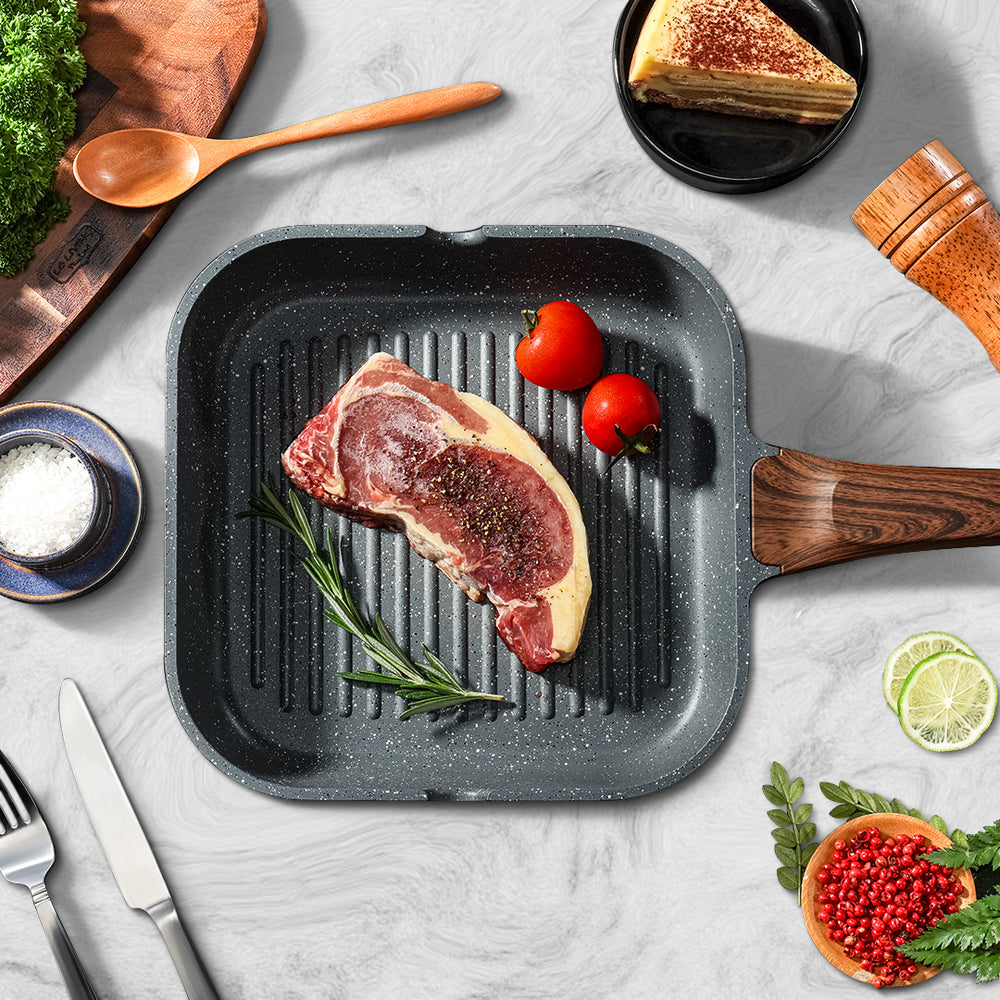Get to Know When to Replace Your Cookware

Common Cookware Problems: Warping, Loose Handles, Weak Joints
Weak overheating can cause the cookware to distort or warp. You can check for warping by simply placing the pot or pan on a flat surface. If the pan is shaking, it may have become rounded or warped. This round shape can lead to cooking hot spots, as the pan can no longer maintain full contact with the heat source and the food can burn.
Weak or loose pan joints can cause liquid to leak while cooking. Make sure to double check all handles and rivets before cooking each time.
When Should I Replace My Nonstick Pan?
Even if you follow proper nonstick cookware care instructions, you could still expect a few small scratches to appear on the nonstick coating while using. If your nonstick skillet or griddle is badly scratched and/or the nonstick coating starts to peel, not only will the food start to stick to the pan, but fragments of the coating can mix in your food.
When Should I Replace My Stainless Steel Pan?
Modern stainless steel pans are a combination of stainless steel exteriors and aluminum or copper centers. You can maintain shine and effectiveness with proper stainless steel care, but if the core starts peeking out of the stainless, it can react with some acidic foods, like ketchup, causing discoloration.
When Should I Replace My Cast Iron Pan?
Got rust on a cast iron pan with vinegar, steel wool, and dish soap to no avail? Pans made from miscellaneous metals can cause excessive rust. No one wants to eat rust.
When Should I Replace My Enamel Cast Iron Pan?
Over time, chips can develop in the enamel lining the top of the cookware. These aren't too much trouble, but once the enamel starts to flake off along the bottom or the sides you stir or scrape, it will continue to crumble and get into your food.
Caring for Your Cookware
All cookware should come with proper maintenance instructions for the longest return on investment. Always check your repair or replacement options before throwing away your existing cookware.
In addition to the physical cookware aspects that may affect cooking, consider the following:
- Are the exterior surfaces of your cookware dented or discolored?
- Is your collection of pots and pans a mismatch?
- Is your cookware style conflicting with your kitchen?
- Have you ever found yourself using a pan that is too big or too small for your needs?
- Do you use one piece of cookware more than any other?
- Does your cookware affect your cooking pleasure?
If you answered "yes" to one or more of these questions, you are ready to purchase a new nonstick or stainless steel cookware or cookware set. We know that replacing or upgrading cookware can be time-consuming, expensive, and stressful. Check out SENSARTE Cookware online store to find the cookware that best suits your needs, whether you're a budding foodie or a pro!






Leave a comment